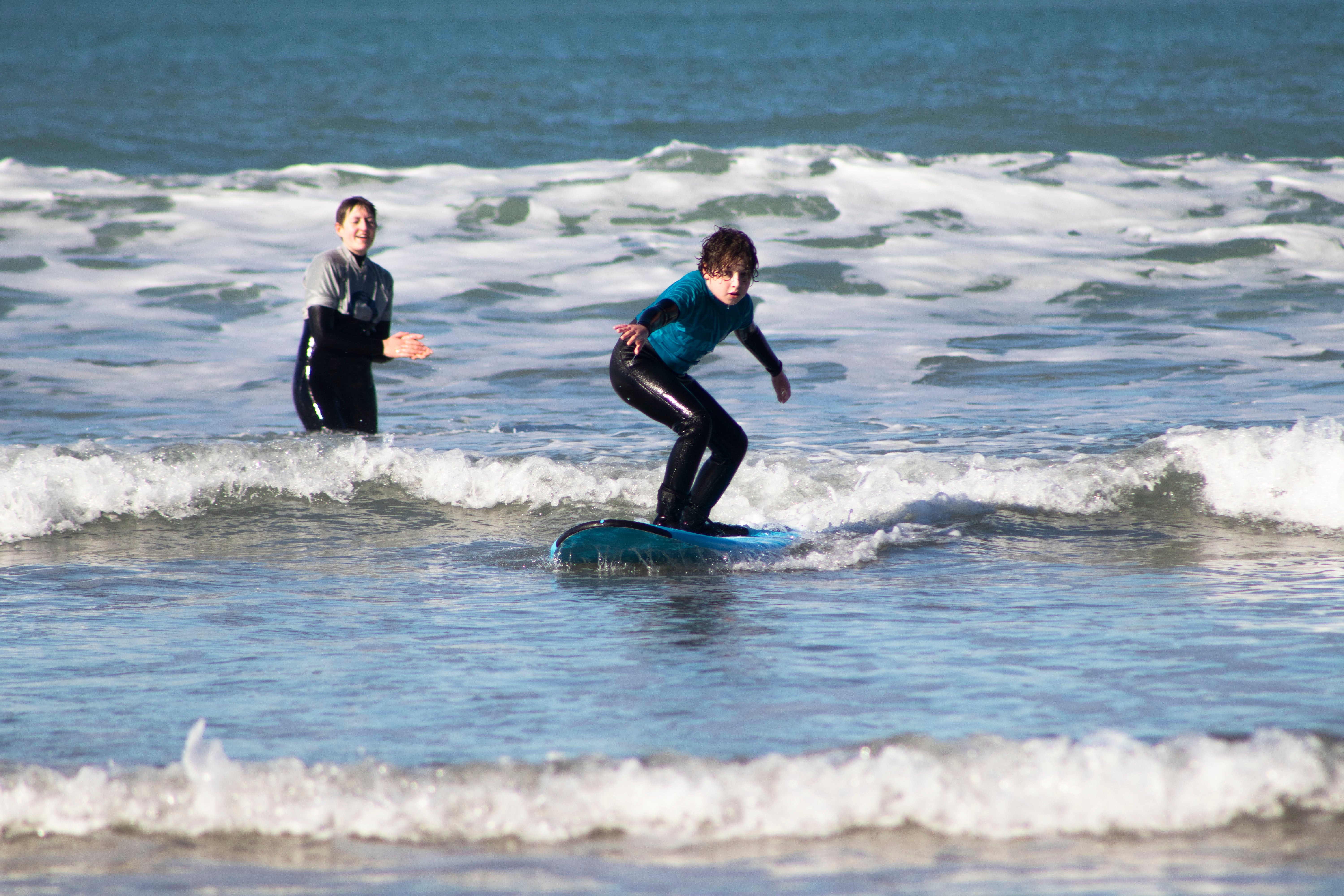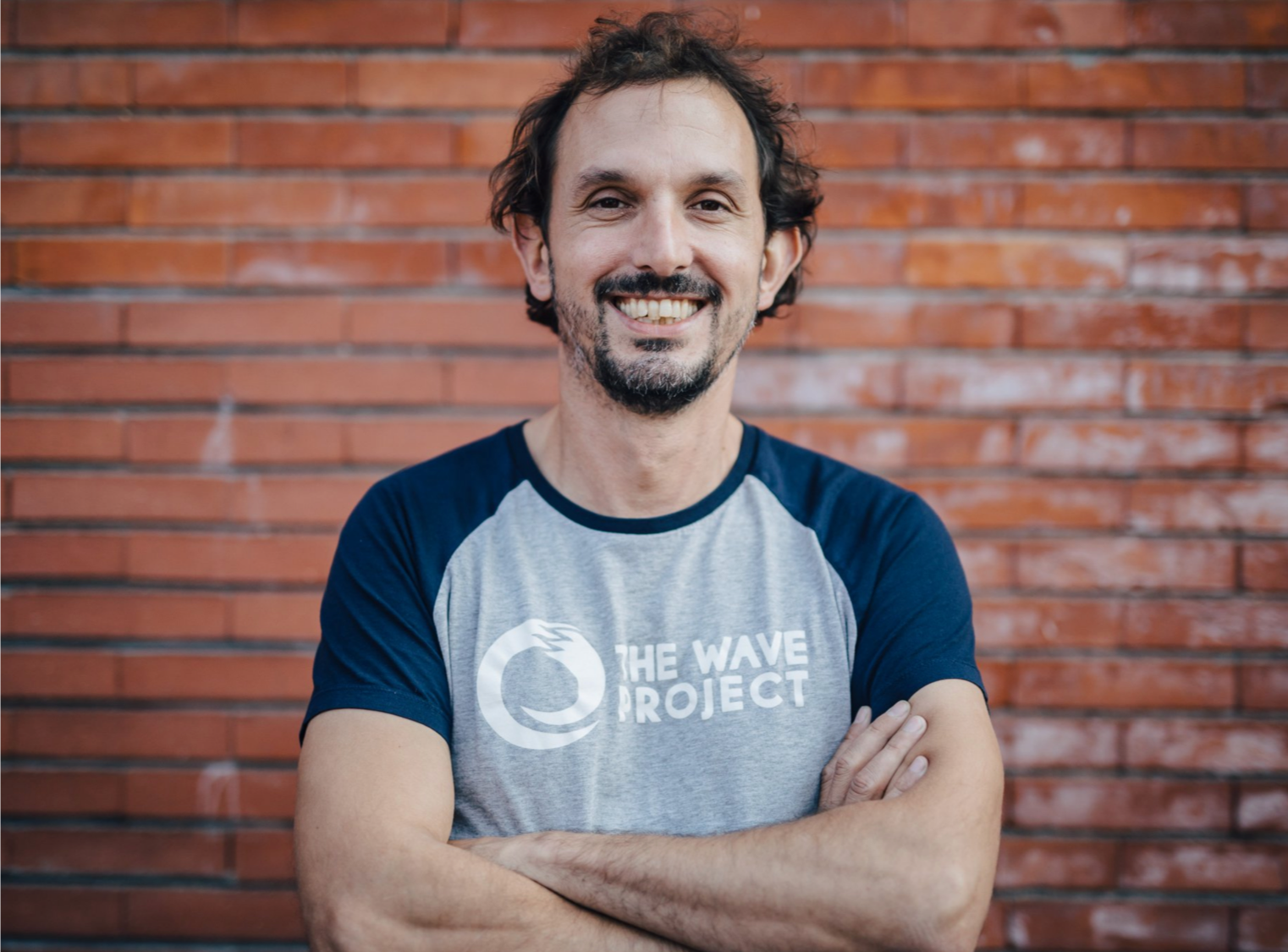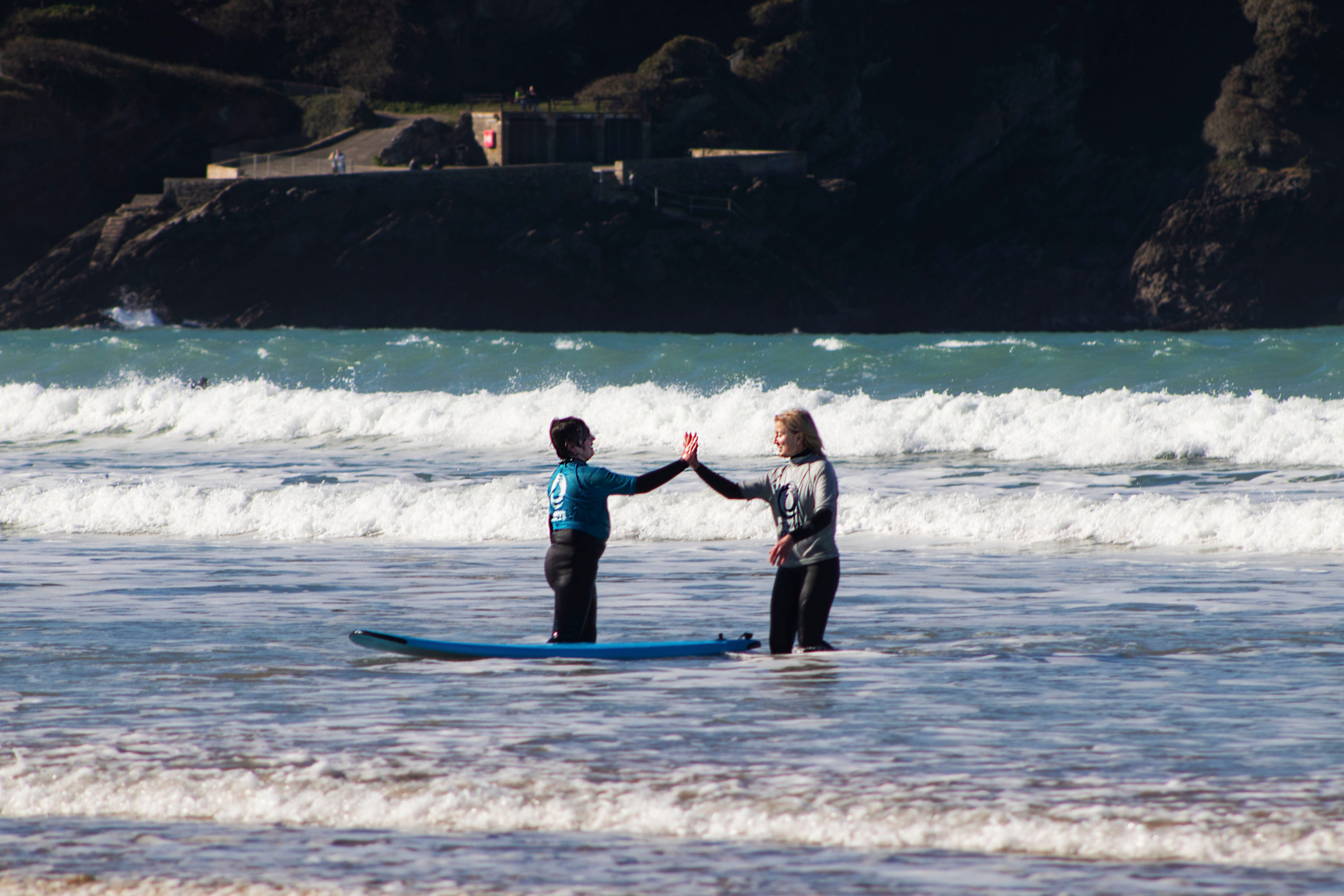How the Wave Project offers struggling teens a surfing lifeline
Founder Joe Taylor tells Andy Martin how a born again-type experience among the waves led him to start a surf charity that helps youngsters with crippling mental health issues


Footballers talk about “work rate”. Cricketers have to “slog”. Rugby players glory in getting stuck in and sacrificing themselves for the team. But no one ever accused surfers of “working” too hard. Rightly or wrongly, surfing is synonymous with pleasure. So the notion of surfing as a job will strike many readers as an oxymoron. It’s all palm trees and shimmering blue waters and perfect waves, isn’t it? Joe Taylor, for one, knows that it’s more than this. Surfing is tough, it’s serious, it’s demanding, but it’s also a way of overcoming your inner demons. For some it’s a lifeline, which is how he came to set up and run the surf charity, the Wave Project.
For a surfer, it helps to be born in Hawaii or California or Bells Beach. Taylor was born in Northampton, “one of the most landlocked places in Britain”. He went to school in Liverpool and studied at St Andrews University in Scotland. It’s fair to say he had strictly limited access to palm trees and perfect waves. He ended up in London with no idea what he wanted to do next.
Taylor worked in television for a while, as third assistant director (“ie dogsbody, mainly making tea”) on Caroline Aherne’s Mrs Merton and Malcolm. “It bombed,” he says. But he did a journalism course in Cornwall and fell in love with the southwest and took a job with a local newspaper, the Falmouth Packet. Meanwhile he had discovered surfing.
It was the year 2000, Taylor was 24, and two guys named Aeneas and Ronin, doing a course on “surf science”, took him out at Gwithian Beach. It was a born-again type experience because he was soon asking himself the question, “What am I doing with my life?” He decided journalism wasn’t for him. “My parents were despairing of me ever doing anything useful.”
By the second or third week a child suffering from long-term mutism started talking to his surfing instructor, asking for advice
An occupational psychologist told him that all the work he had been doing had been “objective”, whereas his personality was naturally “subjective”. For a while he worked as a constituency organiser, directing campaigning for the Falmouth Lib Dem MP Julia Goldsworthy. When she lost her seat by a handful of votes he lost his job. But he had already set up a charity, Freedom Surf, for underprivileged and vulnerable kids. Then the NHS gave him a small grant to try out a surfing pilot scheme that was specifically health related. He thought he would give it a couple of months and then go into teaching.
That was back in 2010 and now he is more committed than ever to the Wave Project. “The pilot was so unbelievable,” says Taylor, who is choked up, ten years later, just thinking about it. “It’s hard to talk about, the impact was so huge.” In September, in sunny weather with good waves, he and a small crew of surf gurus took a bunch of teenagers with seemingly intractable mental health issues out at Watergate Bay in Newquay. Purely by chance, they “stumbled across” the right approach. “We didn’t talk about their issues. The volunteers treated them as human beings, not patients. They didn’t patronise them. We weren’t trying to fix anyone – we were just going surfing.”
One kid who was self-harming wanted to show Taylor his scars. Taylor wasn’t interested. “We’re going surfing,” he said. Another kid suffered from mutism and hadn’t said a word to anyone for years. None of the therapies had worked. By the second or third week he started talking to his surfing instructor, asking for advice.
The thing about surfing, if you haven’t done it before, is that it’s so difficult and potentially life threatening to boot, that you have to focus on it 100 per cent. At a certain point, it is all-consuming. “The water takes over and draws you in,” says Taylor. They didn’t know it, but surfing was therapy. “Mindfulness was not a thing then, but it was mindful.”

Taylor had to spend a couple of years convincing sceptical people that the beneficial effect was real. But a series of academic studies by independent psychologists have subsequently shown that what he discovered back in 2010 is not a purely subjective and ephemeral phenomenon. Or rather that the subjective is objective and can be shown to make a measurable and long lasting difference in the lives of young people suffering with mental health. The evidence showed that, after a solid dose of surfing, Joe Taylor’s insecure, stressed-out teenagers with challenges shot up the “Rosenberg self-esteem scale” and the “Stirling children’s wellbeing scale”. His mad experiment had been validated.
The logic is fairly clear. You are suffering from stress and anxiety. You go surfing and are confronted by a “positive stress”, the shock of cold water in your face, the need not to drown and if possible ride a wave. The first kind of stress is wiped out or erased by the second. Instead of worrying about your old problems, you worry about a new one. The quintessential act of surfing, getting “tubed”, where the surfer is covered up by the curtain of the wave, is like descending into the underworld and then re-emerging, intact. It’s almost like being resurrected.
“The students developed a real bond with their mentors,” says Taylor. “There are rip tides and big waves. You physically cling to someone who knows what they’re doing. Without intending it, a real bond of trust just happened.”

On the last session of that pilot course, a couple came up to Taylor out of the blue and hugged him. He realised they were the parents of the kid with mutism when they said, “Our son has come back to us.” It was then that Taylor realised he had to continue what he had started. “For the first time in my life I’d done something that was bloody useful.” Surfing had changed his own life as well as that of the young people in his charge. “It still brings tears to my eyes.”
Now there is surfing on prescription. It works. The Wave Project is established in 20 locations all around the country, with outposts from Scotland to the Isle of Wight. Taylor has even taken it right back to St Andrews, where he used to study English literature, and Dunbar on the east coast. “We haven’t changed it,” says Taylor. Admittedly they get thicker wet suits in Scotland. “The principle is they can never do anything wrong.” They were surfing throughout the third lockdown. “From a Covid point of view, surfing is one of the safest things you can do.”
Join our commenting forum
Join thought-provoking conversations, follow other Independent readers and see their replies
Comments